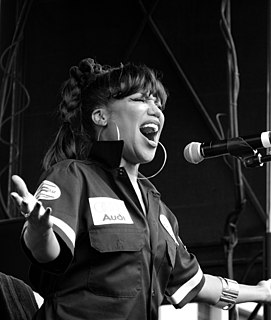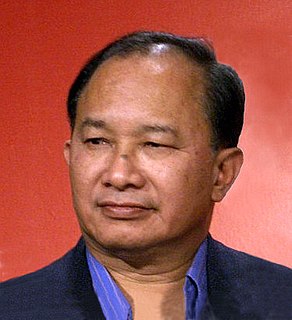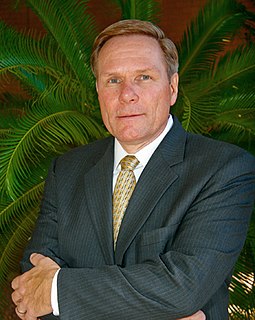A Quote by Trevor Paglen
I wanted to make an artwork that really underlined the contradiction between how machines see and how humans see. Because music is so affective and is just as corporeal as it is cerebral, I thought coupling a music performance with machine vision adds up to something that work on an emotional, aesthetic, and intellectual level.
Related Quotes
Everyone was saved once by music. So I decided to REALLY work on my songs and not just "play" - to make something really good, more "professional." Something which makes you feel better; a song who says: "I know how much you're sad, and you're not alone, this is a song made for you." I really wanted to help with my music.
I really wanted to, but I just didn't understand how people became comedians. I kind of thought it was something you were born into. And so I wanted to be a veterinarian or an architect. I wanted to be in a band, and for some reason I could understand how you could be in a band because I had guitars and all my friends played music. Comedy was a secret want, but it wasn't anything I pursued.
I saw lots of music devices. I loved playing with music devices. And like most of the world, I thought of a music device as a music device. Steve Jobs tends to look beyond that, and he doesn't see a music device as having any importance at all - how fast it is, how many songs it can hold, and all that - he sees music itself to a person as a being the important thing.
All experiments that are related to the games when you have humans versus machines in the games - whether it's chess or "Go" or any other game - machines will prevail not because they can solve the game. Chess is mathematically unsolvable. But at the end of the day, the machine doesn't have to solve the game. The machine has to win the game. And to win the game, it just has to make fewer mistakes than humans. Which is not that difficult since humans are humans and vulnerable, and we don't have the same steady hand as the computer.
I was an actor when I was a teenager and it could have been the direction that I headed in. But music and my relationship with music is quite deep, and it really is the nucleus of my creativity. So I gave up acting so I could pursue music fully, and I never thought about really going back. And then [director] Lee Daniels met me and wanted to work with me, and that's how it started.
At a young age, I really wanted to make music and make my own sort of thing. I'm sure if it wasn't music, it would have been writing, or it would have been maybe painting. I just always had the drive to try and make something with my hands and to just pull something out of myself and shape it and see it in front of me, if that makes any sense.
Although humans today remain more capable than machines for many tasks, by 2030 machine capabilities will have increased to the point that humans will have become the weakest component in a wide array of systems and processes. Humans and machines will need to become far more closely coupled, through improved human-machine interfaces and by direct augmentation of human performance
It's funny, now that we have Twitter and Facebook and stuff, you can really see how you affect fans. Before all that, fans couldn't tell you exactly how they feel, unless they came up after a show, and even then you can't stand there and talk to everybody in the audience. So it's nice to see people tweet me and say, "Your music has changed my life," or "I had my baby to your music," or "I got married to your music." I've heard so many things, and it's amazing to hear people's stories and how you affect their life.
In a basic music way, my sense of melody and my style of songwriting and production carry the same thought process into the new music. I'm thinking about machines and electronics, and how they interact with motion, which I've touched upon in the past. Those key themes are my main interests, and they are really the foundation for my approach to music.








































